You rely on your UPS for backup power. You're curious about its battery – is it a one-time use, or can it be recharged? This fundamental question impacts its usability.
Yes, UPS batteries are designed to be rechargeable. The UPS unit itself contains a built-in charger that automatically replenishes the battery's power whenever mains electricity is available.
This recharging capability is essential to a UPS's function, allowing it to provide backup power multiple times without needing battery replacement after each use. The UPS keeps its internal battery topped up, ready for the next outage.
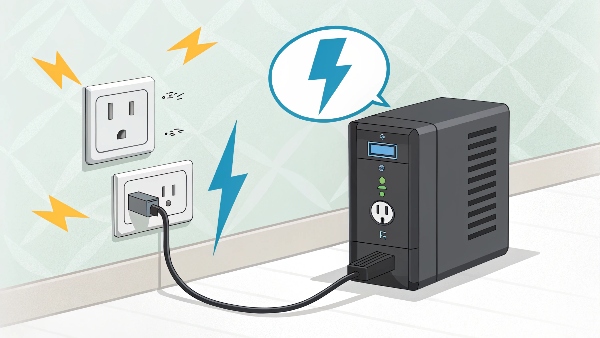
At DAOPULSE, manufacturing UPS systems for a decade, we know the battery is the heart of any UPS. My insight is that UPS batteries can be continuously recharged, are environmentally friendly (when properly recycled), and offer long service life. Both lead-acid and lithium batteries can be used. Customers can choose between lead-acid and lithium batteries based on their specific usage scenarios. This choice and the rechargeable nature are key to the UPS's value. Let's explore this further.
Are UPS batteries rechargeable?
You're looking at a UPS or already own one. You're wondering if the battery inside needs to be replaced after every power outage, or if it can be used again.
Yes, unequivocally. UPS (Uninterruptible Power Supply) systems are specifically designed with rechargeable batteries. The UPS unit itself acts as a charger for its internal battery.
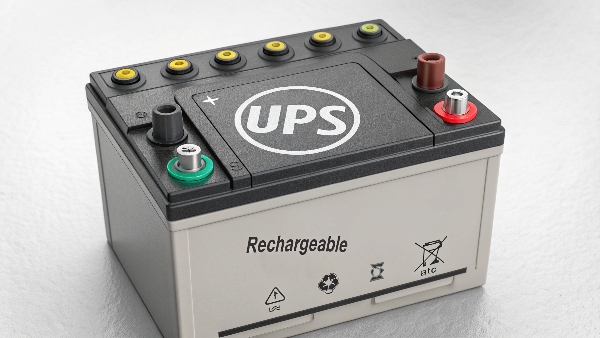
This is a core design feature of any UPS. When your utility power is on and stable, the UPS not only powers your connected devices (often passing through the utility power directly or conditioning it) but also simultaneously charges and maintains its internal battery. When a power outage occurs, the UPS seamlessly switches to battery power. Once utility power is restored, the UPS automatically begins recharging the battery so it's ready for the next event. This cycle of discharge during an outage and recharge during normal operation is fundamental to how a UPS provides "uninterruptible" power over its lifespan. Imagine the impracticality if you had to replace the battery after every brief flicker of power! The most common types of rechargeable batteries used in UPS systems are Sealed Lead-Acid (SLA)1, often VRLA (Valve Regulated Lead-Acid), and increasingly, various Lithium-ion chemistries2. Both are designed for many charge-discharge cycles. The UPS's internal charging circuitry is specifically matched to the type of battery it houses to ensure safe and efficient recharging.
Can I send rechargeable batteries through UPS (the shipping company)?
You need to ship rechargeable batteries, perhaps a replacement UPS battery or batteries for other devices. You're unsure if UPS, the shipping company, allows this and what rules apply.
Yes, you can generally send rechargeable batteries via UPS (the shipping company), but strict regulations apply, especially for lithium batteries, which are classified as dangerous goods. Proper packaging, labeling, and documentation are crucial.
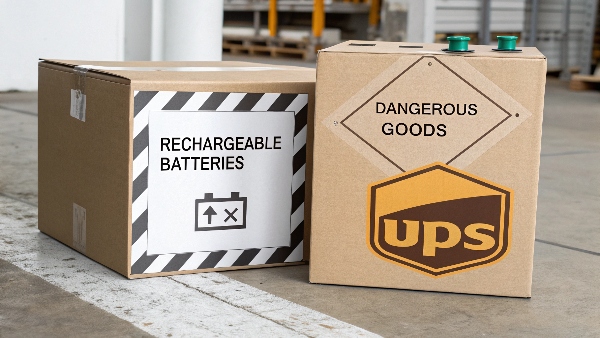
Shipping rechargeable batteries, especially lithium-ion types, is subject to stringent regulations because they can pose a fire risk if damaged, short-circuited, or improperly packaged. UPS (the courier service, distinct from Uninterruptible Power Supplies) has specific rules that align with international and national dangerous goods regulations (e.g., IATA for air, DOT for ground).
Here's a general overview, but always check the latest UPS shipping guidelines directly on their website or with a representative before shipping:
-
Lead-Acid Batteries:
- Non-spillable lead-acid batteries (like most VRLA/SLA batteries used in UPS systems) are generally easier to ship than lithium batteries.
- They still require proper packaging to prevent short circuits and damage. Terminals must be protected.
- They may need to be declared, but restrictions are less severe than for lithium.
-
Lithium Batteries (e.g., Lithium-ion, Lithium Polymer, LiFePO4):
- These are heavily regulated.
- Classification: They are classified as Dangerous Goods (Class 9).
- Packaging: Requires UN-spec packaging in many cases, designed to prevent short circuits, protect against damage, and contain any potential incidents. Batteries must often be individually protected.
- Labeling: Specific hazard labels are required.
- Documentation: Shipper's Declaration for Dangerous Goods may be necessary.
- Quantity Limits: Restrictions on the number of batteries or total watt-hours per package often apply.
- Shipping Service: Not all UPS shipping services may accept all types/quantities of lithium batteries. Ground shipping is often preferred or required over air for certain types.
- Battery State of Charge: Some regulations require lithium batteries to be shipped at a reduced state of charge (e.g., not more than 30%).
My insight is that UPS batteries can be continuously recharged. When it comes to shipping them, particularly for replacements or returns, as a manufacturer we at DAOPULSE are well-versed in these shipping regulations. It’s critical to comply to ensure safety and avoid shipments being rejected or fined.
What is the best battery type for UPS?
You're choosing a UPS or replacing its battery. You want to know which battery technology – lead-acid or lithium-ion – is considered "best" for this application.
The "best" battery type depends on your specific needs and budget. Lithium-ion generally offers longer life, lighter weight, and faster recharge, but at a higher upfront cost. Lead-acid is more affordable initially.
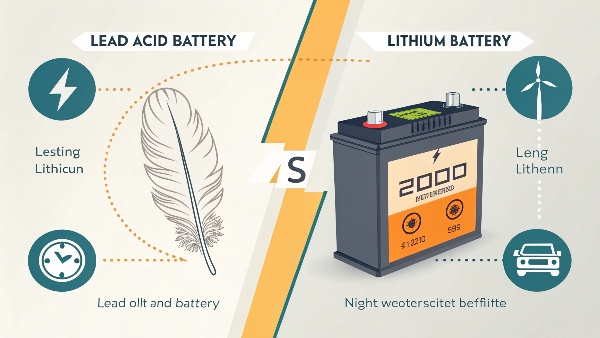
There isn't a single "best" battery type for all UPS scenarios, as the ideal choice hinges on balancing performance, lifespan, budget, and specific application requirements. Here's a comparison of the two main contenders:
Sealed Lead-Acid (SLA / VRLA) Batteries:
- Pros:
- Lower Upfront Cost: Significantly more affordable to purchase initially.
- Proven Technology: Mature, well-understood technology with a long history in UPS applications.
- Good Availability: Widely available and easy to source replacements.
- Established Recycling: Very efficient and widespread recycling infrastructure.
- Cons:
- Shorter Lifespan: Typically 3-5 years, requiring more frequent replacement.
- Heavier and Bulkier: Lower energy density means more weight and space for the same capacity.
- Slower Recharge: Takes longer to recharge after a discharge.
- Temperature Sensitive: Performance and lifespan can be negatively impacted by high ambient temperatures.
- Limited Cycle Life: Fewer charge/discharge cycles compared to lithium.
Lithium-ion Batteries (especially LiFePO4 for UPS):
- Pros:
- Longer Lifespan: Typically 8-10+ years, significantly reducing replacement frequency.
- Lighter and More Compact: Higher energy density means less weight and space.
- Faster Recharge: Can be recharged much more quickly.
- Higher Cycle Life: Can withstand many more charge/discharge cycles.
- Better Temperature Tolerance: Generally perform better across a wider temperature range.
- Lower Total Cost of Ownership (TCO): Despite higher initial cost, can be cheaper over the long run due to fewer replacements and reduced maintenance.
- Cons:
- Higher Upfront Cost: Significantly more expensive to purchase initially.
- Requires Complex BMS: Needs a sophisticated Battery Management System for safety and optimal performance.
- Developing Recycling Infrastructure: Recycling is possible but not as streamlined or universally accessible as for lead-acid yet.
My insight: Customers can choose between lead-acid and lithium batteries based on their specific usage scenarios. If upfront budget is the primary driver for a less critical application, lead-acid is fine. For critical systems, long-term value, or space/weight constraints, lithium-ion is increasingly the superior choice.
Is a lithium-ion battery good for UPS?
You've heard about lithium-ion technology in various devices. You're specifically wondering if its characteristics make it a good fit for uninterruptible power supplies.
Yes, lithium-ion batteries are exceptionally good for UPS applications, offering significant advantages in lifespan, performance, size, and weight over traditional lead-acid batteries, despite a higher initial cost.
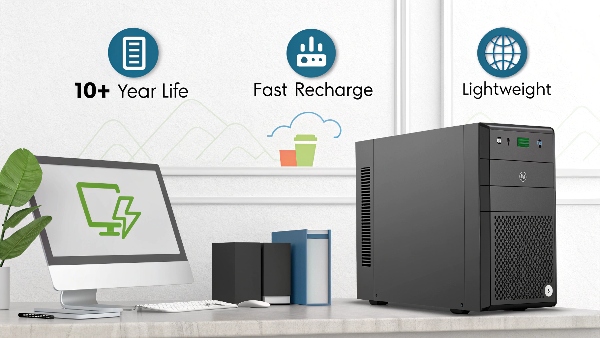
From my perspective as an OEM/ODM manufacturer at DAOPULSE, lithium-ion technology represents a major advancement for UPS systems. The benefits are compelling for many users, from individual consumers to large data centers. The most impactful advantage is the extended operational life. Lithium-ion batteries, particularly chemistries like Lithium Iron Phosphate (LiFePO4) often favored in UPSs, can last two to three times longer than typical lead-acid batteries. This translates directly into reduced maintenance hassles, lower replacement costs over the life of the UPS, and greater reliability.
Furthermore, lithium-ion batteries offer superior power density. This means they can store more energy in a smaller and lighter package. For rack-mounted UPS systems in data centers or compact setups in offices, this reduction in footprint and weight is highly beneficial. They also recharge significantly faster than lead-acid batteries, meaning the UPS is ready for a subsequent outage much sooner. Their ability to handle a greater number of deep discharge cycles without significant degradation is another key plus, especially in areas with frequent power disturbances. While the initial purchase price is higher, the Total Cost of Ownership (TCO) often favors lithium-ion when you factor in the extended battery life and reduced replacement labor. The integrated Battery Management System (BMS) in lithium-ion UPS units also provides enhanced monitoring and protection, contributing to overall system safety and longevity. My insight is that more and more uninterruptible power supplies are equipped with lithium batteries, and this trend is driven by these tangible benefits.
Conclusion
UPS batteries are indeed rechargeable, forming the core of their utility. While shipping them requires care, especially lithium types, their reusability is key. Choosing between lead-acid and lithium-ion depends on specific needs, with lithium offering long-term advantages.

